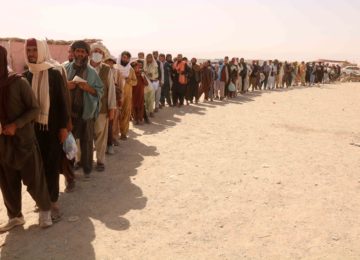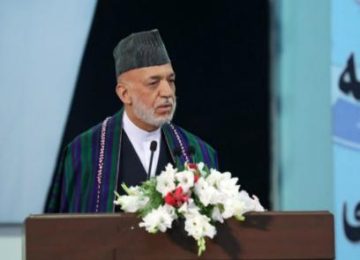September 25, 2020

Islamabad-Kabul bilateral relations, after many years seem to be increasingly on a positive trajectory. There is chain of events, with high level engagements and confidence building measures (CBMs) that are lately acting as solid building blocks for consolidating goodwill and mutual cooperation between the two sides. It appears that the top leadership on both sides have finally realized that there is no other option for a progressive future, but to work together.
In this context, lately, Afghan President Ashraf Ghani, has also expressed Afghanistan’s inclination to bolster bilateral relations and trade with Pakistan. The President highlighted that his government has adopted the regional connectivity policy that will be to the benefit of Pakistan, particularly on transmission of the Central Asian energy to the country. He was talking to Pakistan’s new Ambassador Mansoor Ahmad Khan, who presented his credentials at the Presidential Palace in Kabul.
In parallel, Dr. Abdullah Abdullah, who is heading Afghanistan’s High Peace Council for National Reconciliation, is arriving in Islamabad next week. This latest Islamabad-Kabul engagement is expected to be around the dynamics of ongoing preliminary deliberations in the intra-Afghan negotiations at Doha, capital of Qatar.
This would be Dr. Abdullah’s first official visit in over a decade. Ahead of veteran Afghan leader visit to Islamabad, Pakistan took another major CBM, by formally opening a Customs Station at Angoor Adda border crossing in the once terror-infested South Waziristan region. With this, the number of functional international border crossings between the two countries has risen to five, expected to help in expanding the bilateral and transit trade.
Through a string of CBMs, Pakistan has been working proactively to address some concerns, off and on raised by Afghan officials, traders and refugees. For instance, the National Bank of Pakistan is about to open its branch at the Ghulam Khan border in South Waziristan and the Bank of Khyber will start operations from Angoor Adda. These branches will be operational 24/7 in order to support the transit trade.
Moreover, under new visa policy, instead of one-time entry visa, all intending Afghans will be issued a 06 monthly multiple entry visa. Business stakeholders and students will be eligible for 3-5 years long term visa, while, health Visa will be issued at the border on arrival- starting initially from Torkham and will be applicable at all crossing points soon.
Additionally, Pakistan has also okayed to open 12 trade markets/ bazars at the border crossing points along with borders to Afghanistan. The objective, officials said, is to provide livelihood opportunities to the populations living in and around the border region.
Islamabad’s targeted interventions to strengthen cross-border trade with Afghanistan will have positive spill-over effects in general and within Pak-Afghan border areas in particular. Opening a chain of border crossing points along Pak-Afghan border will greatly reduce the transaction costs; hence, boosting the economy, a win-win for both the countries.
© Center for Research and Security Studies (CRSS) and Afghan Studies Center (ASC), Islamabad.








